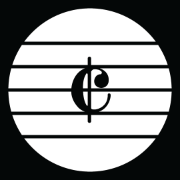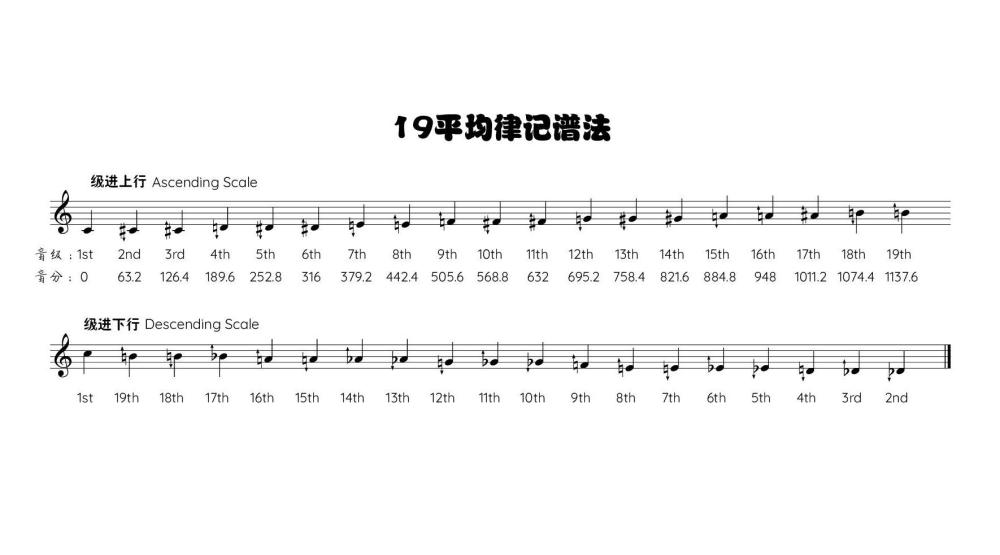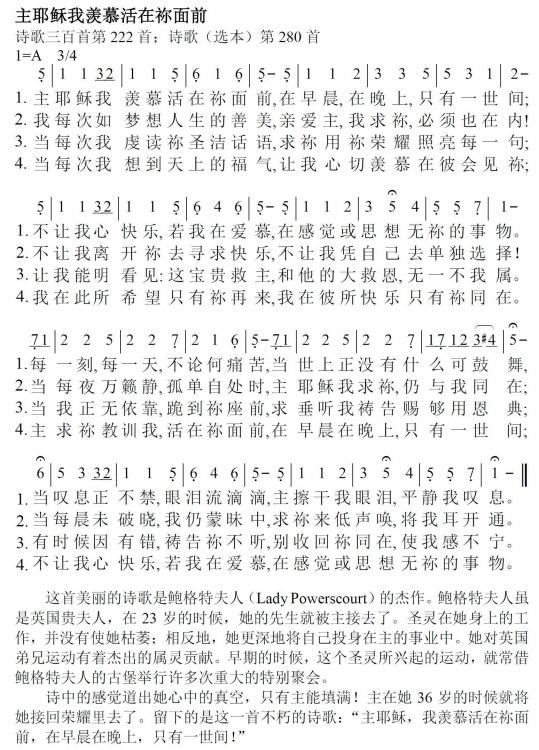Search the Community
Showing results for tags 'variations'.
-
Greetings. It has been a while since I posted something on this forum. I didn't get to review compositions by other members lately due to being busy with my studies, and I'm sorry for that. Anyway, a few weeks ago, I decided to write a theme and variations for the piano. This was my first time writing music with this structure, but it was not because I lacked inspiration. I took it as an exercise to boost my creativity and improve my composition skills. This eight-minute-long piano piece, written in E-flat major, is one of my major works. It consists of a theme, five variations, and a short finale. These variations are based on a simple theme I created, which I finished within a few hours. On average, each section took me a day to complete. One difficulty I faced when writing this composition was to keep the material interesting while not being too distant from the theme. Here is the breakdown of the structure of this composition: Main theme (E-flat major, Maestoso, 6/8): It's an operatic yet simple theme, which opens forte and Maestoso. 1st variation (E-flat major, 6/8): This variation is a berceuse with grace-note embellishments in the melody and frequent hand-crossing. 2nd variation (E-flat major, Più mosso, 6/8): This playful variation features sixteenth-note figurations in the right-hand part. 3rd variation (A-flat major, Sostenuto, 6/8): This variation is a serenade and the slowest among the five variations. This variation ends with a long pause, marking the beginning of the fast section towards the finale. 4th variation (E-flat major, Vivace, 6/8): This variation is partly inspired by the third movement of Beethoven's fifth piano concerto. This fast section demands virtuosity and contains a short cadenza passage. 5th variation (E-flat major, 2/4): This variation is an étude featuring rapid triplets in the right-hand part. This section is the shortest among all variations, lasting under a minute. Finale (E-flat major, Presto, 6/8): The finale opens with tremolos and a horn-like passage restating the main theme, followed by a reprise of the fourth variation at a much quicker tempo, quickly concluding the piece. Let me know what you think about this piece. I hope you'll enjoy it! Carl Koh Wei Hao P.S. The audio was generated on MuseScore 2.3.2.
-
Variations on a Theme from "Dragon's Lair"
AlexeySavelyev posted a topic in Competition Hall of Fame
Here is the mockup of a piece I submitted to "From Bits to Bangers". Spent a month composing this going through some research first and then actually composing, because I didn't know a thing about "Dragon's Lair". Apparently it is a really hard-to-beat 1983 game where you need to go through different levels and fight a dragon in the end to save your princess (Daphne). I didn't know that my description would end up in submissions thread (might've misread the OP), because I would've guided listeners a little better than I did, but anyways here is the original description: "So I took Dragon's Lair track here. This is free variational form with developement in different fields. I went from studying the soundtrack and noticing it's medieval feel, so I went for this too at first with my work and it goes sort of from just typical folk Dorian scale to a sort of modern polytonic harmony in the end. This track played at a dungeon level, so I wanted to represent that too, going with some nocturnal feeling, developing into some conflict in the end which resolves and goes back to Dorian scale in the end, referencing the 'peaceful' beginning. " Originally named Dungeon Variations, though it's not the dungeons, that the original track plays on, it's in the mines, but whatever 😄 There are a few moments that I was considering while composing this: 1. So first thing is the context, because it is a story based music, so it has to follow context heavily. Medieval context is a must, and an original track asks for a ballade like approach. Hence why I was questioning this "From Bits to Ballads" offence by one of the judges, because you simply can't YOLO this track (or Kirby's too) and go for heavy metal Castlevania-like approach. You can, of course, but that would not be a good "Execution of a Given Challenge" in my head. 2. Characteristics of the initial theme: all in downward chromatism. In the game the hero dives more and more into the depths of the castle and this chromatism in theme supports this feeling when you enter the mines level. I wanted to retain this and develop as I can. 3. Nocturnal feeling is a must. Supporting major-minor relations and going from folk Dorian scale to heavy polytonical textures in the end introducing the main theme has to retain that spooky feeling of the original. So by all that I had Theme 1 (T1) which is simply a variated form of the original melody. Theme 2 (T2) which is the original melody by itself. And characteristic chromatic downwards motion. All in all creating story through chromatic motion downwards (spooky, sad, nocturnal) or diatonic (representing the hero, good, radiant, light), just to be there as a certain contrast to the chromatic motion. 1. Piece starts off with the intro, setting the medieval mood of T1 in Dorian Scale, which uses diatonic relations for setting up a mood. Later on introducing main hero fanfares later on entering the castle and facing his fate. You can hear chromatic downwards motion in clarinets in the woodwinds line after fanfares. 2. Initial setup of a original theme. Getting introduced to a T2, variated from the original rhythmically in a clear nocturnal texture, followed by developement using chromatic motion downwards in lower register at the same time as diatonic motion upwards in the higher registers. 3. Modulation to D minor with chromatic downwards motion setting up the next section, which uses variated form of T2 setting up uncomfortable mood. Constant changes in lows between I and VII# makes sure this feeling stays there. Thick harmonies in clarinets and horns are used to enhance that feeling of unease. All that is supported by pedal tones in Trumpet and Trombone lines. Dangers of the castle seems to evade as Trumpet introduces a diatonic upwards motion melody. 4. Diatonic upwards motion in Viola solo line now features I-VIm harmony from the original theme, indicating that even in the light there is darkness now and the new danger might be approaching. After that flute line refers the T2 again, variated to be slower rhythmically as bassoon line refers T1 one last time before the culmination. This section lives in a distinctive contrast to sections 3 and 5. 5. Culmination itself uses the original theme in its full form. With the initial melody there are two counterpoints. One is in violas and clarinets, and the other one is in trumpet line. Both are there to support the final battle mood. Trumpet is enhancing strong harmonies while constant moving. Double tonguing in flutes is introduced to reference the initial track's melody delay FX. Ending is open. After all you don't know if you've beaten the dragon, or have to reset the whole game and repeat your path. If former - horn solo just sends you back to the beginning, if latter - it means you are in peace again with your love interest and can live happilly ever after in your medieval magical fantasy world 😄 Thanks for reading and listening. I hope you enjoyed. Sincerely, Alexey.-
- orchestral
- from bits to bangers
-
(and 1 more)
Tagged with:
-
my new microtonal piano piece, adpoted 19 tone equal temperament and normal piano, which intertwined with each other. the video: 【微分音钢琴】作品5之8 变奏曲_哔哩哔哩_bilibili
- 2 replies
-
- piano solo
- 19tet
-
(and 6 more)
Tagged with:
-
this is my new piece, an arrangement of a Christian psalm, hope you like it! the video: 【黄越青】钢琴独奏作品:主题和四个变奏_哔哩哔哩_bilibili
- 3 replies
-
- claudio huang
- original
-
(and 4 more)
Tagged with:
-
I just arranged a religious theme into a series of piano variations, hope you like it! the video: 【黄越青】昔日所唱诗歌(钢琴变奏曲)_哔哩哔哩_bilibili
- 1 reply
-
- original
- variations
-
(and 5 more)
Tagged with:
-
Max Payne, since I got to know it back in 2006, has been one of my favorite games. Its atmosphere, the presentation of simple but tragic story, the snow-covered New York City, all of that forever imprinted itself in many ways and partly shaped my taste for good atmospheric games. The main musical theme of this one remains one of the most recognizable to me. Hearing the very first notes awakens my old, warm memories of a time spent in this dark and atmospheric world. It was this theme that I thought about writing variations on for a year, but all the time it didn't work out. I had no energy, or even no idea how to write my own variations on such a not very classical musical theme. However, recently, on July 28, quite unexpectedly, I sat down at the piano to practice, and as a result I wrote a variation in one night, originally I had no intention of composing anything at all. Even more interesting for me, on July 31, I came across a video from remedy. As it turned out, it was Max Payne's birthday on July 23. It had been 20 years since the game's release. Well, let this be my little gift and thanks to this game for good memories. I hope the music turned out well. Happy past birthday, Max!
-
Hello everyone, here I am presenting you another composition of mine. This one I finished a few years ago as part of my academic studies. It is a typical variation cycle. The goal was to practice putting thematic material in different context, as you will hear. I hope you enjoy the video too.
-
This is the first theme and variations I've composed. The theme is very simple and has an almost sarcastic tone but in retrospect I wish I polished the harmony before proceeding with the variations. The first two variations follow the usual pattern of triplets then syncopated rhythm. The third variation uses arpeggios in the manner of a harp, the fourth imitates the pattern in the famous bach prelude in C, the fifth is in the minor mode and uses a syncopated pedal, the sixth is the slow variation but i couldn't change the tempo on my midi program so I used a different meter to get around this problem, the final variation is like a fast waltz which leads into the coda. I really enjoyed composing these variations and they are experimental so I don't know if they will please other's ears as they are not exactly in any one particular style. It'd be great to hear what you think.
-
I found a very beautiful Adagio melody sketch found among Beethoven's sketches for his quartett op. 130 . I liked this theme so much that in April I wrote a variation movement for string quartett on this. It starts with the naked theme, then it is repeated with an added bass line and a second part from me, then 7 variations follow: http://www.gerdprengel.de/Beeth_quartett_sketch_1825_variations.mp3 http://www.gerdprengel.de/Beeth_quartett_sketch_1825_variations.pdf I hope it will speak to you ... and I am open for any suggestions for improvement ... Gerd
-
- beethoven
- variations
-
(and 1 more)
Tagged with:
-
- 7 replies
-
- 1
-

-
- piano
- variations
-
(and 2 more)
Tagged with:
-
Hello everyone, It has again been a while since I have posted anything, and I have a new piece to show you all: the Fantasy-Variations in G-sharp minor. This piece was written in 2020. The theme is based on an aria from the 1967 opera "Grigory Melekhov" by the composer Ivan Dzerzhinsky. Ivan Dzerzhinsky (1909-1978) was a Soviet composer and pianist, best known for his operas and popular songs. His most famous work is the 1935 opera "Quietly Flows the Don" (based on the novel of the same name by writer Mikhail Sholokhov), which was a success at its premiere, and which launched Dzerzhinsky's career as a composer. He continued writing operas over the next several decades, including "Virgin Soil Upturned" (from which the duet "The Cossack Song" has since become popular among Russian ensembles), "Fate of a Man", and of course, "Grigory Melekhov" (also based on Sholokhov's novel). Aside from operas and vocal works, he also composed piano concertos and piano suites. His music usually is quite traditional and accessible, many pieces bearing similarities to Mussorgsky and even Puccini. With the exception of "The Cossack Song", his works receive very few performances today, and they are almost entirely within Russia. Furthermore, he has been labeled a "hack" by musicologists for his musical style, and for his status within the Soviet Union. I wrote this piece because I thought Dzerzhinsky's melody was too beautiful to be forgotten, and I wanted to make it available to other people, as well as to add something new to it; this is not meant to be a political piece. All that said, I hope you all enjoy the piece. 🙂 Also, for those of you who are interested, here is the original theme:
- 7 replies
-
- 5
-

-
- piano
- variations
-
(and 1 more)
Tagged with:
-
Hello everyone, I am back, this time I'm going to post a piano arrangement of a Christian hymn, hope you like it!
- 1 reply
-
- hymn
- arrangement
-
(and 4 more)
Tagged with:
-
Closer to the finished product. This piece is intended as a submission for a music festival -so, I'm trying to make sure it's as close to perfect as possible. I've expanded the second entrance of the slow section -playing around with the ascending chromatic scale alongside a 4 note motive. This work is a bit personal to me in that it is a reflection on life, death, and my own experience of the two (under the lense of bipolar disorder). Hope you enjoy!
- 3 replies
-
- string trio
- variations
-
(and 2 more)
Tagged with:
-
Hello, Recently I created a set of variations for a competition held by the YouTube channel TwoSetViolin. I had to write 11 variations for two violins and piano , each for a different composer or genre. I believe it turned out well, but I should note I only had a week to create it, and each variation had to be at least 20 seconds long. Despite this, it should be a pleasant and thrilling listen. *Headphone warning- loud artificial harmonics in recording Variations: 1. Bach 2. Mozart 3. Beethoven 4. Brahms 5. Debussy 6. Paganini 7. Shostakovich 8. Myself 9. Film 10. Jazz 11. Pop Recording: https://www.dropbox.com/s/2z5f1xcxxbo0idm/TwoSet Variations-EB.mp3?dl=0 Score: https://www.dropbox.com/s/bkckvo0qhbobb60/TwoSet Variations-EB.pdf?dl=0
- 2 replies
-
- violins
- variations
-
(and 2 more)
Tagged with:
-
Hello! You may perhaps have seen the collaboration topic for Theme and Variations on a Dutch folk song ''Sinterklaas is jarig''. Since I don't get any variations, I have decided that the piece is finished now. I want to thank all participants for their submissions, which are all great! It was fun to have so many people submit a variation, so maybe we can do more collaboration projects on the basis of simple songs. Theme: ''Sinterklaas is jarig.'' For more info, see below. I made a mistake by confusing the song ''Sinterklaas is jarig'' with ''Oh! Kom maar eens kijken.'' The latter is incorrect. Variation I. @MusicianXX12 Varation II. @Luis Hernández Variation III. @ilv Variation IV. @MusicianXX12 Variation V. @Maarten Bauer Variation VI. @Maarten Bauer Variation VII. @DirkH Variation VIII. @Aure_liano BACKGROUND INFORMATION The theme is a Dutch / Flemish Saint Nicholas (Sinterklaas) song. ''The feast of Sinterklaas celebrates the name day of Saint Nicholas on 6 December. The feast is celebrated annually with the giving of gifts on St. Nicholas' Eve (5 December) in the northern parts of the Netherlands and on the morning of 6 December, Saint Nicholas Day, in the southern provinces of the Netherlands, as well as Belgium, Luxembourg and northern France (French Flanders, Lorraine and Artois). The tradition is also celebrated in territories of the former Dutch Empire, including Aruba, Bonaire, Curaçao and Suriname.'' (Wikipedia, n.d.). To practise your Dutch, here is a special episode from 2016 when Sinterklaas arrives in Maassluis. The text in this theme (there are many variations) is the following including the translation: Sinterklaas is jarig! 'k Zet mijn schoen vast klaar. Wellicht dat hij hem vol doet met, ja wist ik het maar. Hier zet ik wat water en wat hooi voor 't paard, want dat trouwe beestje is het heus wel waard. It's Sinterklaas' birthday. I'm putting my shoe down already. I hope that he will fit it with, if I only knew... Here I put some water there some hay for the horse, because that faithful animal is really worth it. Sinterklaas is jarig 5.0.mp3 Sinterklaas is jarig 5.0.pdf Best wishes, Maarten
-
This is the piece I newly composed, hope everyone like it, and @Monarcheon welcome your commentation.
-
I didn't enter the last great competition, but I began to write this piece thinking of it. Now that the competition is over, I'd like to bring it here. It was funny mixing atonal, tonal and contemporary languages. The are two scores. They are the same, but one of them includes notes about the series or chords used in every variation. There are also two files with notes (in English and in Spanish). Greetings!
-
These are variations on 'Voi che sapete' written for string quartet. Please let me know what you think!
-
Since I have the pleasure of being a judge for the theme and variations Fall Competition I thought I'd share with you my own set of variations. This is a set of 17 variations on a theme of Scriabin for piano. I composed this piece off and on for over 8 years. It's a very dark and expressive piece of music. Shakespeare's Macbeth was on my mind during it's composition. I hope you enjoy it.
- 3 replies
-
- 1
-

-
- piano
- variations
-
(and 1 more)
Tagged with:
-
Var on a Theme from Peter and the Wolf for String Quartet - full score.mp3 This is my entry to the Fall 2016 competition. I chose to use the initial theme from Peter and Wolf for String Quartet. Many fond childhood memories are associated with this piece for me, so I was excited to utilize it. I chose to arrange the variations for quartet because I quite simply love the dynamic that a quartet has, it's room for expression and individuality while also retaining the bigger sound that comes from ensemble. The theme I used can be found here https://www.youtube.com/watch?v=9ueGfjBKbiE starting at 1:45 I'm not entirely satisfied with how the piece came out, but I am happy I put myself to a deadline and stuck with it, and I look forward to participating in future competitions!
- 2 replies
-
- variations
- string quartet
-
(and 1 more)
Tagged with:
-
This is my modest entry for the 2016 Fall Competition. It's a set of variations for solo alto recorder, recorded in my not-even-close-to-a-studio bedroom. It's me playing it. More information can be read in the Notes pdf file. A link to an actual presentation of the original theme (an anonymous folk music) can be watched here (there's a short lively intro before the music starts): Variações sobre o Siriá.mp3
- 5 replies
-
- folk
- competition
-
(and 5 more)
Tagged with:
-
Eleven Piano Variations on Elgar's Violoncello Concerto's First Movement's Theme.mp3 This is my 3rd set of variations for solo piano. I composed it as my entry in the YC Fall competition. The theme is Elgar's Violoncello Concerto's (Op. 95), first movement's first theme. I chose this theme because it was the first to come to my mind when I was thinking about what theme to choose. I chose it also because it is very memorable, reflective, and sad. I consider it to be one of the greatest themes ever composed. I chose the piano as the instrument to compose for, because Elgar had already done a great job with the violoncello and strings in the treatment of this theme. So I decided to take the opposite approach and treat it with a keyboard instrument instead. I also had composed two of my previous sets of variations for piano. So the piano was a natural choice. This is the link to the theme on YouTube: https://www.youtube.com/watch?v=f_Xg7JZcyIk&t=1m17s
- 3 replies
-
- 1
-

-
- variations
- elgar cello concerto theme
- (and 2 more)
-
Disclaimer: This is NOT my entry for the fall competition. I wrote this piece during my student days as an exercise. I was inspired by the Downton Abbey soundtrack and instrumentation, which consisted of piano and strings. I came up with an original theme and wrote 3 variations on it. I would appreciate any feedback and comments. Happy listening! PS: The audio is a little meh....but you'll get the general idea.
- 6 replies
-
- 1
-

-
- theme
- variations
-
(and 2 more)
Tagged with:















